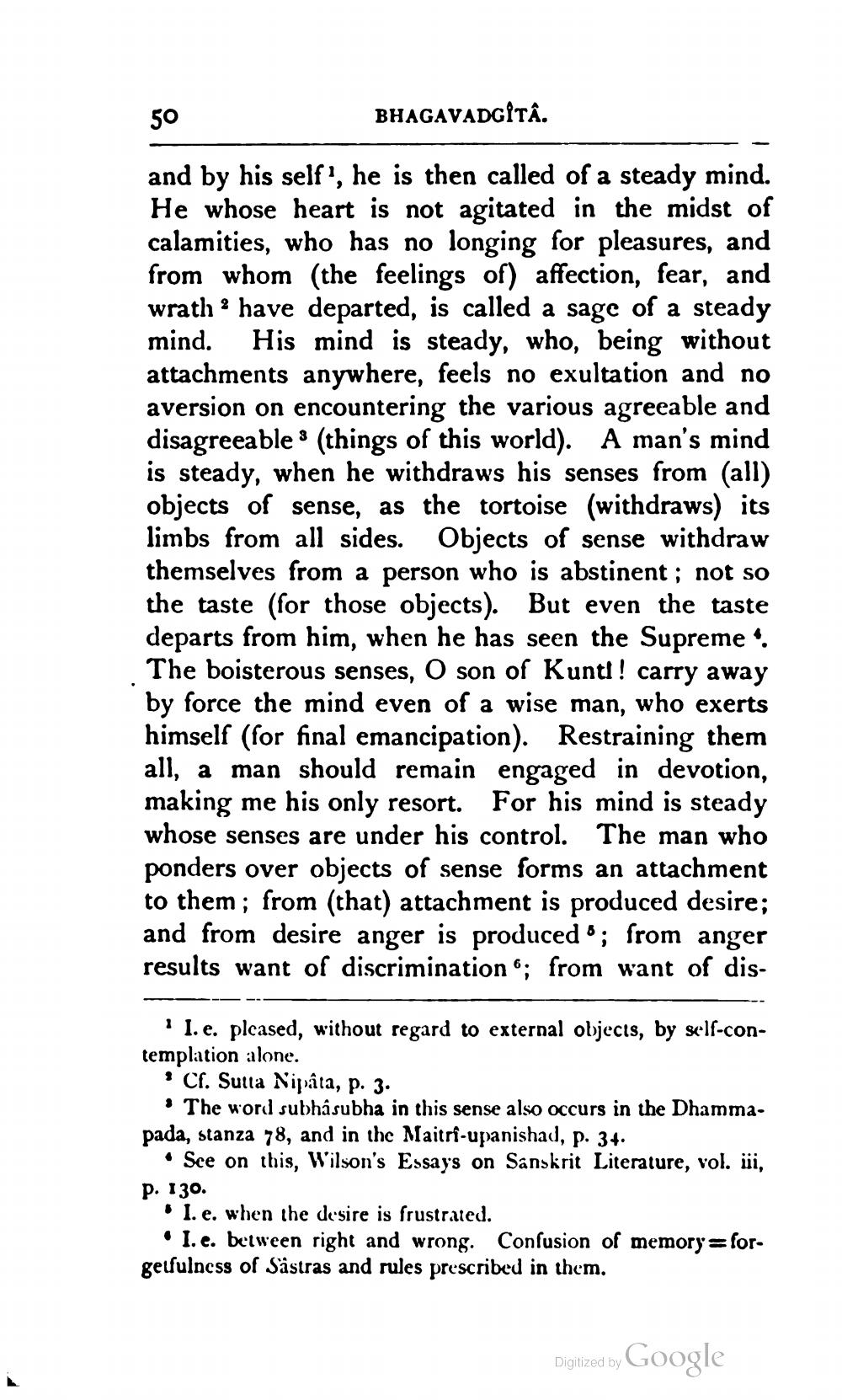________________
50
BHAGAVADGITA.
and by his self', he is then called of a steady mind. He whose heart is not agitated in the midst of calamities, who has no longing for pleasures, and from whom (the feelings of) affection, fear, and wrath · have departed, is called a sage of a steady mind. His mind is steady, who, being without attachments anywhere, feels no exultation and no aversion on encountering the various agreeable and disagreeables (things of this world). A man's mind is steady, when he withdraws his senses from (all) objects of sense, as the tortoise (withdraws) its limbs from all sides. Objects of sense withdraw themselves from a person who is abstinent; not so the taste (for those objects). But even the taste departs from him, when he has seen the Supreme *. The boisterous senses, O son of Kunti! carry away by force the mind even of a wise man, who exerts himself (for final emancipation). Restraining them all, a man should remain engaged in devotion, making me his only resort. For his mind is steady whose senses are under his control. The man who ponders over objects of sense forms an attachment to them; from (that) attachment is produced desire; and from desire anger is produced "; from anger results want of discrimination o; from want of dis
' I.e. pleased, without regard to external objects, by self-contemplation alone.
? Cf. Sulla Nipâta, p. 3.
• The word subhâsubha in this sense also occurs in the Dhammapada, stanza 78, and in the Maitrî-upanishad, p. 34.
• See on this, Wilson's Essays on Sanskrit Literature, vol. üi, p. 130.
. I. e. when the desire is frustrated.
• I.e. between right and wrong. Confusion of memory=for. gelfulness of Sastras and rules prescribed in them.
Digitized by Google




